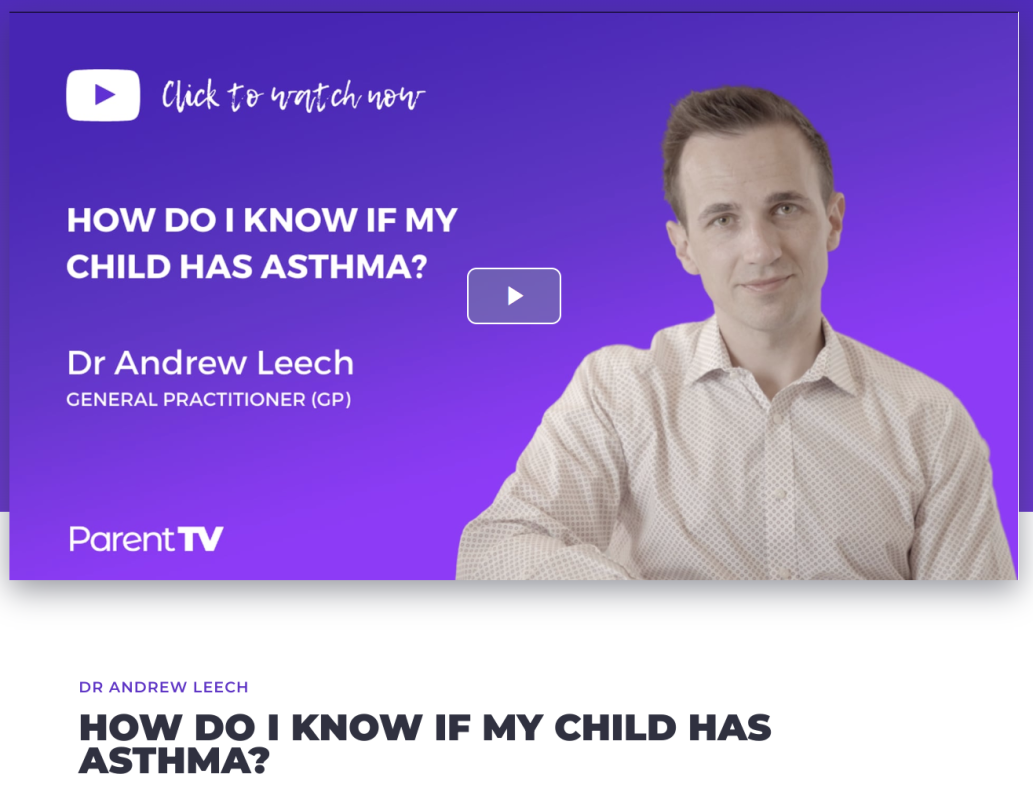Asthma in Children: Symptoms, Triggers, and Care Tips for Parents and Childcare Workers
Categories: General Parenting, Health
Asthma in children is one of the most common long-term health conditions worldwide, but recognising it—especially in younger children—can be tricky. Knowing what to watch for, how to manage symptoms, and when to seek help can make a huge difference to a child’s comfort, safety, and ability to live an active life.
What is Asthma in Children?
Asthma is a condition where the airways—the small tubes that carry air in and out of the lungs—become narrowed, inflamed, or blocked. This “airway obstruction” makes breathing more difficult and can cause coughing, wheezing, or shortness of breath.
Children’s airways are smaller than adults’, so even minor swelling can significantly affect breathing. This is why asthma in toddlers, preschoolers, and primary school children can sometimes look more severe.
Asthma Symptoms in Children (0–12 Years)
Two of the most common asthma symptoms in children are cough and wheeze.
- Cough – Often persistent, especially at night, early in the morning, or after exercise.
- Wheeze – A whistling or musical sound when breathing out, though it can also occur on breathing in.
Other possible signs include:
- Shortness of breath
- Tightness in the chest
- Fatigue during play or sports
- Reduced interest in active play (especially in younger children)
Tip: While wheezing is a classic sign of asthma, other conditions can cause wheezing too. Always get a professional assessment.
Common Asthma Triggers in Children
Asthma symptoms can occur anytime, but they’re often triggered by specific factors:
- Exercise-induced asthma – Running, energetic play, or sports.
- Cold or dry air – Winter air or sudden temperature changes.
- Respiratory infections – Colds, flu, and other viruses are a leading cause of asthma flare-ups in younger children.
- Allergens – Dust mites, pollen, pet dander, mould.
- Environmental irritants – Cigarette smoke, strong scents, cleaning products, and air pollution.
Not every child reacts to the same triggers, so keeping track of patterns is key.
Why Asthma Can Be Difficult to Diagnose in Kids
Asthma isn’t always constant—symptoms can come and go, and a child may seem completely well between episodes. Conditions like bronchiolitis, allergies, or vocal cord issues can mimic asthma symptoms.
Diagnosis often involves:
- A detailed medical history
- Physical examination
- Breathing tests (when age-appropriate)
- Observing how the child responds to asthma medication
Asthma Treatment for Children
The main treatments for childhood asthma are:
- Reliever inhalers – Work quickly to relax airway muscles, easing breathing during a flare-up.
- Preventer inhalers – Taken daily to reduce inflammation and airway sensitivity, preventing future symptoms.
For younger children, medication is often given through a spacer with a mask for better delivery.
Practical Asthma Care Tips for Parents and Childcare Workers
- Follow an asthma action plan – Keep a copy at home, school, and childcare.
- Recognise early warning signs – More coughing, shortness of breath, or reduced energy can signal a flare-up.
- Minimise exposure to triggers – Maintain a smoke-free, allergen-reduced environment.
- Support safe activity – Encourage sports and play, but ensure relievers are nearby and warm-ups are done.
- Communicate regularly – Share updates between parents, carers, and teachers for consistent care.
Key Takeaway
With the right management, most children with asthma can lead full, active, and healthy lives. Awareness is the first step—knowing the symptoms, understanding the triggers, and responding promptly can help children breathe easier and thrive.
Check out our ParentTV video below for more information about asthma in children.

Medical Disclaimer:
This article is for general informational purposes only and is not a substitute for professional medical advice, diagnosis, or treatment. Always seek the guidance of a qualified healthcare provider with any questions you may have regarding a medical condition. Never disregard or delay professional medical advice because of something you have read here. If your child is experiencing difficulty breathing, seek emergency medical attention immediately.
